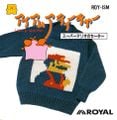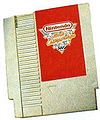Nintendo Entertainment System: Difference between revisions
Mario4Ever (talk | contribs) |
|||
| Line 33: | Line 33: | ||
File:DK3_Cover.jpg|[[Donkey Kong 3]] | File:DK3_Cover.jpg|[[Donkey Kong 3]] | ||
File:Dk jr math box.jpg|[[Donkey Kong Jr. Math]] | File:Dk jr math box.jpg|[[Donkey Kong Jr. Math]] | ||
File:Dk1.jpg|[[Donkey Kong Classics]] | File:Dk1.jpg|[[Donkey Kong Classics]] | ||
File:DrMarioBox.jpg|[[Dr. Mario (game)|Dr. Mario]] | File:DrMarioBox.jpg|[[Dr. Mario (game)|Dr. Mario]] | ||
File:F1Race.PNG|[[Famicom Grand Prix: F-1 Race]] | File:F1Race.PNG|[[Famicom Grand Prix: F-1 Race]] | ||
File:HotRally.PNG|[[Famicom Grand Prix II: 3D Hot Rally]] | File:HotRally.PNG|[[Famicom Grand Prix II: 3D Hot Rally]] | ||
File:Mario sweater.jpg|[[I Am a Teacher: Super Mario Sweater]] | File:Mario sweater.jpg|[[I Am a Teacher: Super Mario Sweater]] | ||
File:Mario Bros. NES Cover.PNG|[[Mario Bros. (game)|Mario Bros.]] | File:Mario Bros. NES Cover.PNG|[[Mario Bros. (game)|Mario Bros.]] | ||
File:Pibolim.PNG|[[Pinball (game)|Pinball]] | File:Pibolim.PNG|[[Pinball (game)|Pinball]] | ||
File:Wrckcover.jpg|[[Wrecking Crew]] | File:Wrckcover.jpg|[[Wrecking Crew]] | ||
File:SMB Boxart.PNG|[[Super Mario Bros.]] | File:SMB Boxart.PNG|[[Super Mario Bros.]] | ||
File:SMB TLL Boxart.PNG|[[Super Mario Bros.: The Lost Levels|Super Mario Bros. 2]] (JP | File:SMB TLL Boxart.PNG|[[Super Mario Bros.: The Lost Levels|Super Mario Bros. 2]] (JP) | ||
File:SMB2 Boxart.PNG|[[Super Mario Bros. 2]] (USA) | File:SMB2 Boxart.PNG|[[Super Mario Bros. 2]] (USA) | ||
File:SMB3 Boxart.PNG|[[Super Mario Bros. 3]] | File:SMB3 Boxart.PNG|[[Super Mario Bros. 3]] | ||
| Line 51: | Line 51: | ||
File:Marioismissingcover.jpg|[[Mario is Missing!]] | File:Marioismissingcover.jpg|[[Mario is Missing!]] | ||
File:mariotimenes.jpg|[[Mario's Time Machine]] | File:mariotimenes.jpg|[[Mario's Time Machine]] | ||
File:NWC 1990.jpg|[[Nintendo World Championships 1990]] | File:NWC 1990.jpg|[[Nintendo World Championships 1990]] | ||
File:Famicom_disk_system-doki_doki_panic.jpg|[[Yume Kōjō: Doki Doki Panic]] | File:Famicom_disk_system-doki_doki_panic.jpg|[[Yume Kōjō: Doki Doki Panic]] | ||
</gallery></i> | </gallery></i> | ||
Revision as of 13:41, August 3, 2011
Template:Articleabout Template:System-Infobox Template:LLQuote
The Nintendo Entertainment System (known as the NES for short) is a video game console created by Nintendo. It was the system that saved the video game industry after the Video Game Crash of 1983.
It was the western version of the Famicom and had controllers that could be removed (unlike the Famicom). The games were inserted by opening a door and sliding the game in, then pushing a panel down. Many people think using this way to insert the game is one of Nintendo's mistakes, as people often say that the games do not work as often, possibly because the constant use of the way to insert the game pushes the circuitry back into the cartridge, so it is harder to read.
The Nintendo Entertainment System was sold with Super Mario Bros. in a special package and resulted in Super Mario Bros. being its most successful game. The game was the highest-selling video game ever, with 40.23 million copies sold, until Nintendo released the Wii with Wii Sports. It rivaled against the Sega Master System until the release of the Super Nintendo Entertainment System.
Eventually, Super Mario Bros. 3 was released in the USA, and it became an instant hit, making five-hundred million dollars in less than twenty-four hours. It soon became the second most purchased game in the gaming world with over 18 million copies sold.
The NES sold 61.91 million units worldwide during its lifetime.
Also, due to the lack of security, many NES games have become pirated, creating games such as 999-in-1, but due to better security, these games have seemingly slowed down. The NES was discontinued in 1994.
In America, the NES was sold in 3 packages:
- Control Deck: Contained the console, two controllers and the needed connections.
- Action Set: This set included the console, two controllers, the Super Mario Bros./Duck Hunt cartridge, the Zapper, and the connections.
- Power Set: The most complete package, it contained the console, two controllers, a Super Mario Bros./Duck Hunt/World Class Track Meet cartridge, the Zapper, the Power Pad, and the connections.
Game Gallery
Note that this gallery also includes Japan-only Famicom and Famicom Disk System games.
- Donkey Kong NES Cover.PNG
- Donkey Kong Jr. NES Cover.PNG
- DK3 Cover.jpg
- Dk1.jpg
- F1Race.PNG
- HotRally.PNG
- Mario Bros. NES Cover.PNG
- Pibolim.PNG
- Wrckcover.jpg
- SMB Boxart.PNG
- SMB TLL Boxart.PNG
Super Mario Bros. 2 (JP)
- SMB2 Boxart.PNG
Super Mario Bros. 2 (USA)
- SMB3 Boxart.PNG
- YoshiBox.jpg
- Yoshi-CookieNES.jpg
- NESgolf-cover.jpg
- Mariotimenes.jpg
- Famicom disk system-doki doki panic.jpg
Appearances in the Mario Series
- At the beginning of the Super Mario Bros. Super Show episode "Mama Mia Mario", as Mario and Luigi are relaxing in front of the TV, it can be seen that Luigi is holding an NES controller.
- At the beginning of Super Mario Bros.: Peach-hime Kyushutsu Dai Sakusen!, Mario can be seen holding a Famicom controller.
- In Super Paper Mario, one of Francis' protected rooms has an NES, along with various other Nintendo consoles.
- The NES appears as one of Wario's treasures in Wario World.
Trivia
- The scheme of the NES controller is the base for all of the newer controllers. The pad on the left, buttons in the right, and the start and select buttons in the middle.
- An NES controller appears as one of the tokens in the 2006 version of Nintendo Monopoly.
External Links





